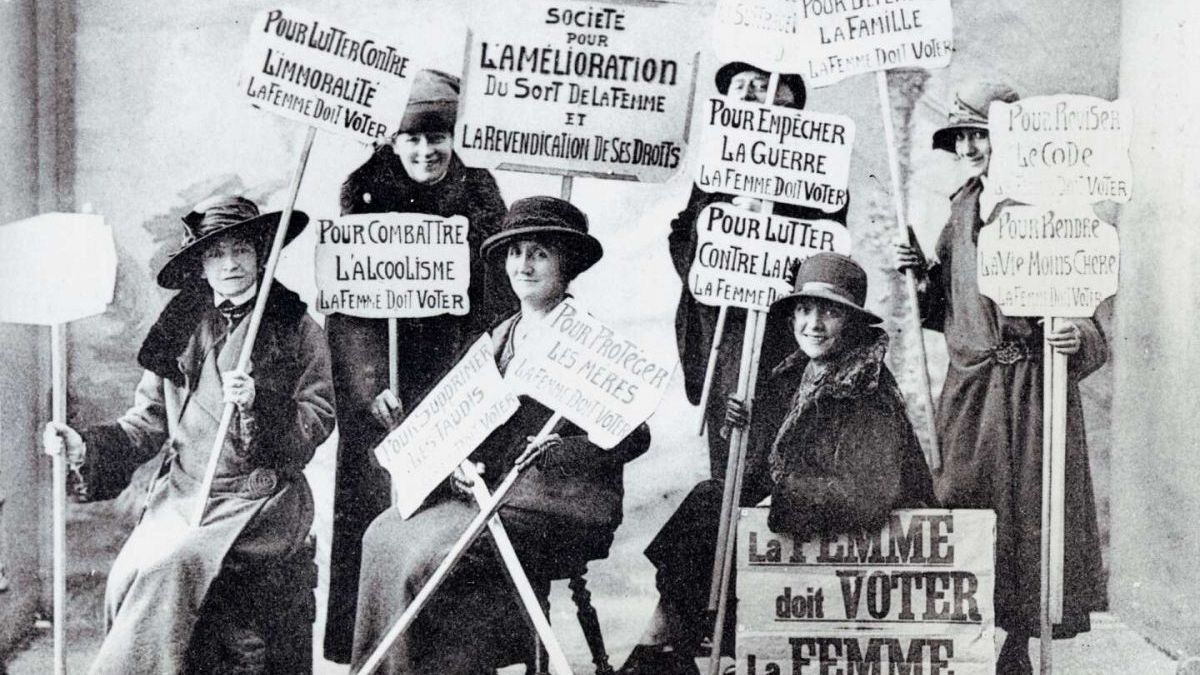Suffrage for women in France was delayed amid German occupation, while elsewhere across Europe, women's voting rights unfolded at a different pace.
Eighty years ago, on April 21, 1944, France decreed that women would have the right to vote in postwar elections.
At the time, France remained under German occupation, and General Charles de Gaulle was leading a provisional government.
With other priorities taking precedence, French women did not actually cast their ballot for the first time until April 1945.
After more than 150 years of agitating for this fundamental right of citizenship, French women finally secured the vote.
This victory came rather late, especially considering the promising proclamations of women such as Olympe de Gouges during the French Revolution of 1789.
Female suffrage across Europe
Despite being a milestone for France, the country lagged behind other European nations that had already embraced women's voting rights by the early 20th century.
In Finland, the birthplace of modern democracy, women gained suffrage in 1906, setting a precedent for the rest of Europe.
Across the continent, from Denmark to Azerbaijan, Germany to Georgia, women were granted at least limited voting rights in the 1910s, marking a significant step towards gender equality in the political sphere.
However, the struggle for suffrage was not without challenges. In the United Kingdom, suffragettes fought tirelessly for the right to vote, employing militant tactics such as chaining themselves to railings and hunger strikes.
Their efforts culminated in the Representation of the People Act 1918, which granted voting rights to certain women over 30.
A gradual process
While many nations embraced women's suffrage early on, notable exceptions existed.
Greece had delayed the implementation of equal voting rights, which didn't come into effect until 1952. The exception was literate women in Greece, who could participate in local elections since 1930.
Switzerland's journey towards gender equality in voting rights was gradual. Women gained the right to vote at the federal level in 1971, while at the local canton level, this right was extended between 1959 and 1990.
Liechtenstein followed suit in 1984, marking a significant step towards gender inclusivity in politics.
The Swiss canton of Appenzell Innerrhoden was among the last European jurisdictions to grant women the right to vote at the local level, doing so in 1990.
Suffrage after Fascism
In Italy, Fascism in the early to mid-20th century interrupted the process of suffrage more than compared to other parts of Europe.
Women's right to vote was finally realised on February 1, 1945, as a culmination of their participation in the struggle against fascism, where many women served in the Italian resistance during the Second World War.
On June 2, 1946, Italian women exercised their voting rights for the first time in the Institutional referendum, choosing between monarchy and republic, and in the constituent Assembly elections.
Following that election, the former King Umberto II voluntarily left the country on 13 June 1946.
Twenty-one women were elected and contributed to drafting the Italian Constitution, advocating for gender equality across all levels, particularly in labour rights, wages, and maternity protection.
'There's Still Tomorrow' is a recent film depicting this period of Italian history, portraying the female protagonist's decision to fight back against her abusive husband due to her first voter's card.
Franco took away women's vote in Spain
Women in Spain gained the right to vote in 1933 through legal reforms under the Second Spanish Republic.
This was short-lived following Franco's ascent to power in 1939 after the Spanish Civil War. Women experienced a significant rollback of rights, though the right to vote was not universally revoked.
Despite the absence of national democratic elections from 1939 to 1977 under Franco's dictatorship, women retained limited voting rights, primarily in municipal elections, subject to specific age and marital status criteria.
Dolores Pérez Lapeña exemplified this by winning a municipal election in Valladolid in 1963. It wasn't until 1977, two years after Franco's death, that women participated in their first national elections in Spain.
France's journey towards suffrage was marked by institutional resistance and political turmoil. Despite early advocacy during the French Revolution, suffrage remained elusive until the aftermath of World War II.
